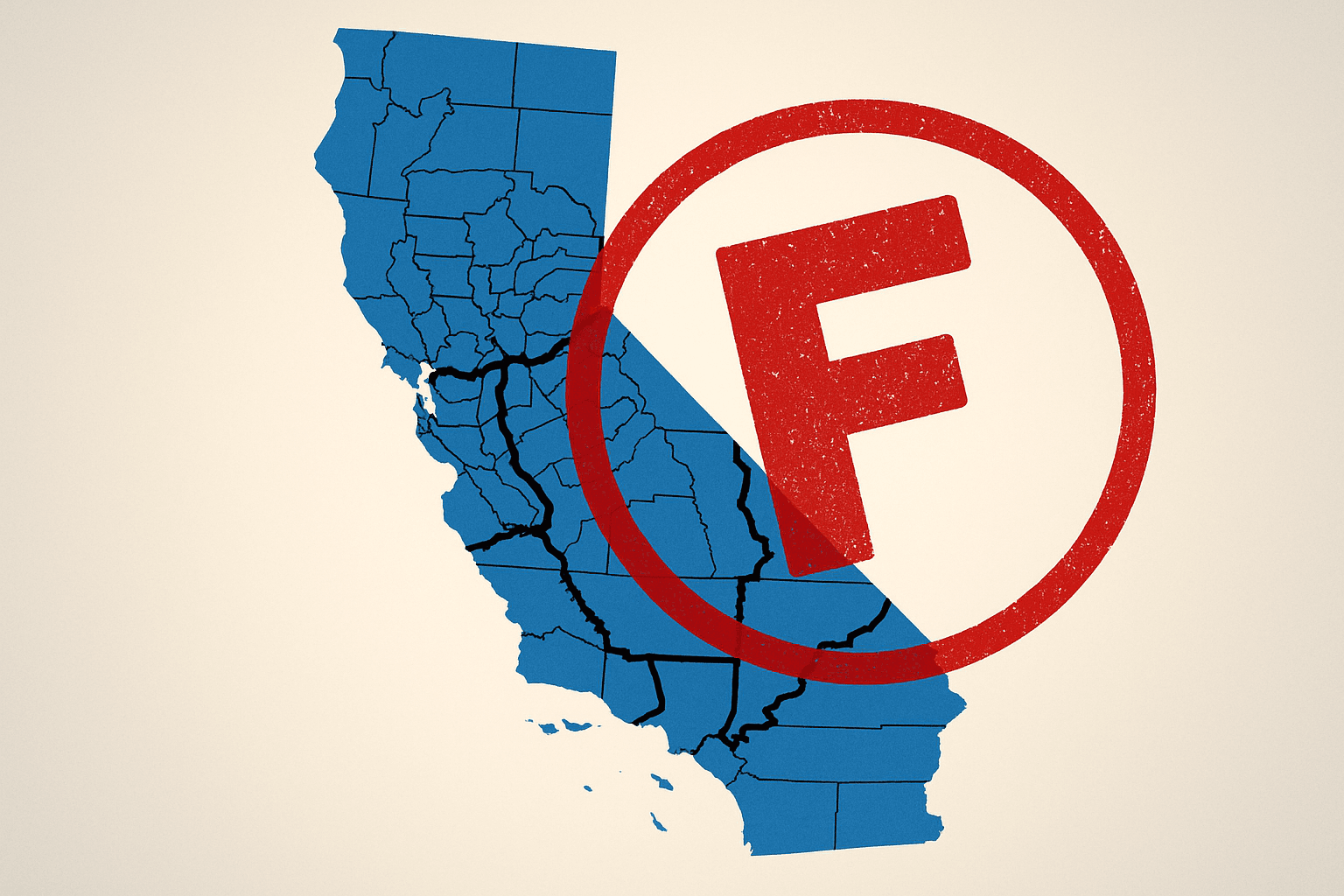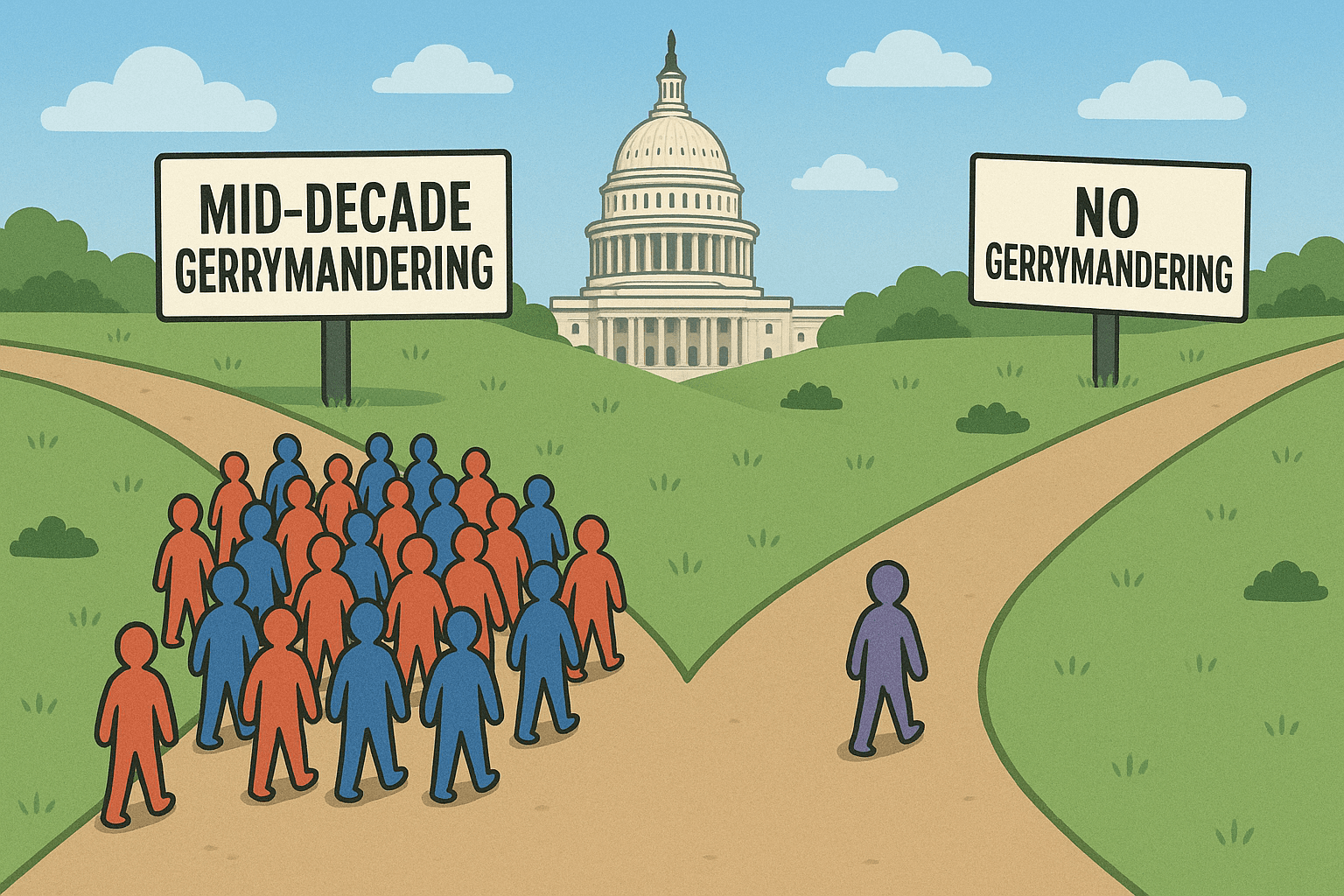Current Electoral System to Blame for Government Shutdown

As week 2 of the first government shutdown in over a decade commences, most political watchers have started asking the question, "How did we get here?"
Some, like Independent New York Mayor Michael Bloomberg, have been quick to blame gerrymandering for the government shutdown that's plaguing Washington. Though 'safe districts' can breed ideological extremism, the popular narrative that gerrymandering is the sole culprit for a dysfunctional government misses a larger underlying factor: the partisan primary.
Two of the primary players in the 'Defund Obamacare' movement in the House of Representatives are emblematic of the consequences of a primary system where only a small minority of base-partisan voters matter. Representatives Mark Meadows (R-North Carolina) and Tom Graves (R-Georgia) hail from predominantly Republican districts, with little to no incentive to capitulate to moderate voters in order to win re-election given the only victory they need is in the primary election.
Meadows authored aletter in August that urged the House GOP leadership to stand with 80 of the 232 Republicans -- including himself -- and use Congress' power of the purse to, "repeal Obamacare in its entirety, this year, next year and until we are successful."
North Carolina's 11th was redistricted following the 2010 census, yet Meadows swept his sole Republican competitor, Vance Patterson, 76 percent to 23 percent. Meadow only needed 17,427 votes in the primary to handily succeed in the general election. He defeated Hayden Rogers, the democrat 57 percent to 42, not a surprise to anyone in a district with a Partisan Voting Index (PVI) rating of R+12.
Ultimately, Meadows succeeded to office with 3.4 percent of the district's registered voters having determined his success in the primary.
Representative Graves sponsored the 'Defund Obamacare Act' in July. It quickly became a rallying point for those opposed to the law and further fractured House Republicans by forcing them to either support or oppose legislation that had little to no chance of ever being passed.
In similar fashion to Meadows' 11th, Georgia's 14th district is heavily Republican with a PVI rating of R+24. However, this fact alone would not be enough to protect against ideological extremism from the 14th's 5 million registered voters, especially considering only 65,873 voters cast a ballot for Graves in the primary.
In that primary, Graves ran unopposed and then defeated Democratic challenger, Danny Gant, 73 percent to 27 percent. After receiving support from less than 1.3 percent of the 14th's registered voters, Graves had secured his seat in the 113th Congress.
North Carolina and Georgia operate under partisan primary systems. Under these partisan systems nonaffiliated voters either need to resign their independence in order to vote for one party or the other in the primary, or choose from solely a Republican or Democratic ballot. Voter turnout in each primary was far below that of the general election.
As long as representatives can be intimidated by a tea party primary challenge in 2014, they will continue to cater towards that demographic. This is increasingly likely in districts with a long-standing Republican tint, but is exacerbated when under 5 percent of the electorate turn out in each district's primary.



